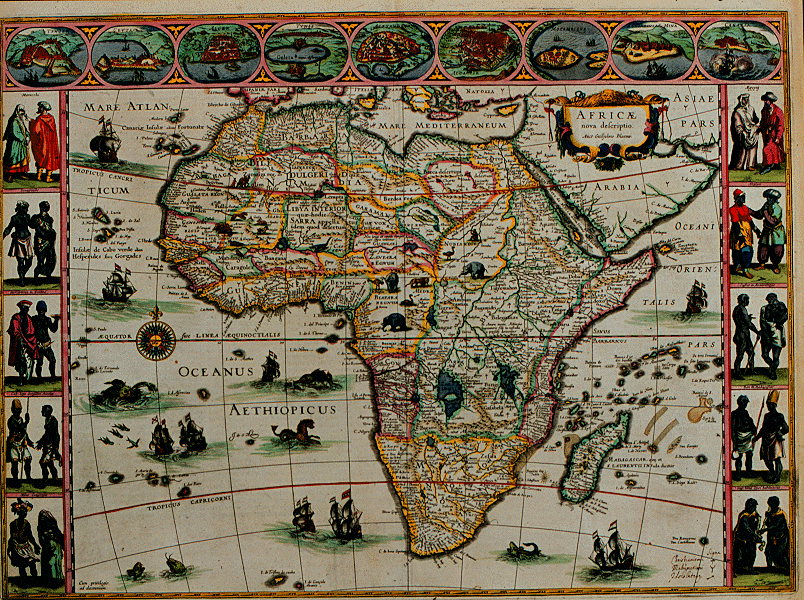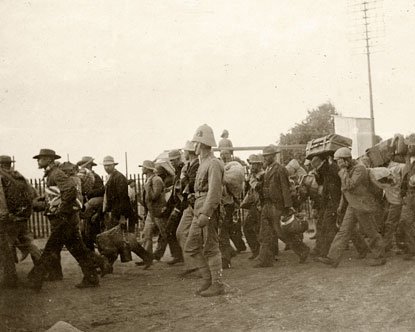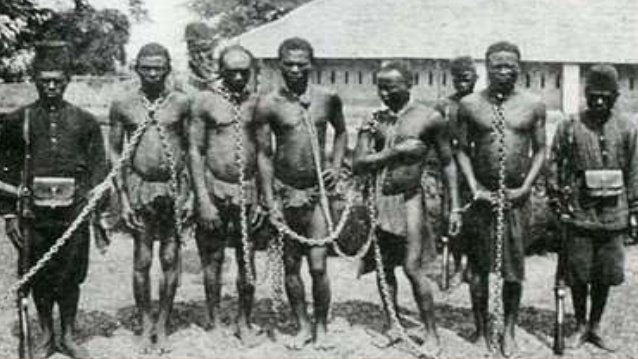
The African history is a huge and complicated subject, world-shaking occasions have molded the mainland's history, from the early men and ladies who left their strides in volcanic cinder to the freedom of Nelson Mandela, and a mess of wars, victories, civilisations and unrests in the middle.
Human sources and relocation's
You've most likely heard the claim that Africa is 'the origin of mankind'. Be that as it may, before there were people, or even gorillas, or even primate predecessors, there was...rock. Africa is the most established and most persisting landmass on the planet. When you remain on African soil, 97% of what's under your feet has been set up for in excess of 300 million years. Amid that time, Africa has seen essentially everything – from proto-microbes to dinosaurs lastly, around five to 10 million years prior, an exceptional sort of gorilla called Australopithecines, that fan out (or rather let go of the branch), and strolled on two legs down a different developmental track.
This radical move prompted the advancement of different bushy, imbecilic primates (early men) – Homo habilis around 2.4 million years back, Homo erectus somewhere in the range of 1.8 million years prior lastly Homo sapiens (present day people) around 200,000 years back. Around 50,000 years after the fact, some place in Tanzania or Ethiopia, a lady was conceived who has turned out to be known as 'mitochondrial Eve'. We don't comprehend what she resembled, or how she carried on with her life, yet we do realize that each and every individual alive today (correct, that is EVERYONE) is plunged from her. So at a profound hereditary level, we're all still Africans.
The break from Africa into the more extensive world happened around 100,000 years back, when a gathering numbering maybe as few as 50 individuals moved out of North Africa, along the shores of the Mediterranean and into the Middle East. From this ominous begin came a populace that would one day cover relatively every landmass on the globe.
Around the time that individuals were first wandering outside the mainland, chasing and assembling was as yet the way of life of decision; people lived in groups that infrequently surpassed a few hundred people, and social bonds were framed to empower these little groups of individuals to share nourishment assets and chase co-operatively. With the advancement of dialect, these bonds bloomed into the beginnings of society and culture as we probably am aware it today.
The main moves from the migrant hunter– gatherer lifestyle divided 14,000 BC and 9500 BC, a period when precipitation was high and the Sahara and North Africa ended up verdant. It was in these green and wonderful grounds that the primary ranchers were conceived, and humanity figured out how to develop trims as opposed to following prey creatures from place to put.
By 2500 BC the downpours started to fall flat and the sandy obstruction amongst North and West Africa turned into the Sahara we know today. Individuals started to move southwest into the rainforests of Central Africa. At this point a gathering of individuals talking a similar sort of dialects had come to overwhelm the scene in Africa south of the Sahara. Known as the Bantu, their populaces developed as they found iron-purifying innovation and grew new farming methods. By 100 BC, Bantu people groups had achieved East Africa; by AD 300 they were living in southern Africa, and the age of the African realms had started.
African domains
Victorian evangelists got a kick out of the chance to think they were bringing the reference point of 'civilisation' to the 'savages' of Africa, yet in all actuality Africans were creating business domains and complex urban social orders while Europeans were all the while pursuing natural life with clubs. A large number of these civilisations were little and brief, however others were genuinely incredible, with impact that came to a long ways past Africa and into Asia and Europe.
Pyramids of energy
Ostensibly the best of the African realms was the main: Ancient Egypt. Shaped through an amalgamation of officially composed states in the Nile Delta around 3100 BC, it accomplished an astounding level of social and social refinement. Refined sustenance creation systems from the Sahara joined with impacts from the Middle East to shape a general public in which the Pharaohs, a race of rulers instilled with the energy of divine beings, sat at the highest point of a profoundly stratified social progressive system. The yearly flooding of the Nile kept the terrains of the Pharaohs prolific and encouraged their armies of slaves and craftsmans, who thusly attempted to deliver probably the most astonishing open structures at any point built. A large number of these, similar to the Pyramids of Giza, are as yet standing today. Amid the great circumstances, which endured almost 3000 years, Egyptians found the principals of arithmetic and space science, designed a composed dialect and mined gold. Antiquated Egypt was in the end invade by the Nubian Empire, at that point by the Assyrians, Persians, Alexander the Great lastly the Romans. The Nubians held control of an incredible swathe of the Lower Nile Valley, regardless of getting a punishing from the Ethiopian domain of Aksum around AD 500.
Hannibal's country
Built up in Tunisia by a secretive race of marine individuals called the Phoenicians (little is thought about their causes, however they presumably hailed from Tire in advanced Lebanon), the city-province of Carthage filled the power hole left by the blurring realm of Ancient Egypt. By the sixth century BC, Carthage controlled a great part of the nearby ocean exchange, their boats cruising to and from the Mediterranean ports weighed down with loads of color, cedar wood and valuable metals. Back ashore, researchers were occupied with concocting the Phoenician letter set, from which Greek, Hebrew and Latin letters are altogether thought to determine. This reached a sudden end with the entry of the Romans, who annihilated Carthage to the ground (in spite of the best endeavors of the compelling warrior Hannibal, Carthage's most commended child) and oppressed its populace in 146 BC. A large group of remote armed forces cleared crosswise over North Africa in the succeeding hundreds of years, yet it was the Arabs who had an enduring effect, presenting Islam around AD 670.
The Kingdom of Sheba
Aksum was the principal genuinely African indigenous state – no vanquishers from somewhere else touched base to begin this amazing kingdom, which controlled a lot of Sudan and southern Arabia at the tallness of its forces. Aksum's heart was the sloping, prolific scene of northern Ethiopia, a cool, green place that stands out strongly from the hot, dry shores of the Red Sea only a couple of hundred kilometers away. The Aksumites exchanged with Egypt, the eastern Mediterranean and Arabia, built up a composed dialect, created gold coins and fabricated forcing stone structures. In the third century AD, the Aksumite ruler changed over to Christianity, establishing the Ethiopian Orthodox church. Legend has it that Ethiopia was the home of the legendary Queen of Sheba and the last resting spot of the baffling Ark of the Covenant. Aksum likewise caught the creative ability of medieval Europeans, who told stories of an unbelievable Christian lord named 'Prester John' who administered over a race of white individuals somewhere down in darkest Africa.
Brilliant kingdoms
The zone around display day Mali was the home of a gigantically affluent arrangement of West African realms that thrived through the span of over 800 years. The Ghana Empire endured from AD 700 to 1000, and was trailed by the Mali Empire (around AD 1250 to 1500), which once extended the distance from the shoreline of Senegal to Niger. The Songhai Empire (AD 1000– 1591) was the remainder of these little-known, exchange based domains, which on occasion secured territories bigger than Western Europe, and whose riches was established on the mining of gold and salt from Saharan mines. Camels conveyed these common assets over the leave to urban areas in North Africa and the Middle East, returning weighed down with fabricated merchandise and delivering an immense excess of riches. One Malian ruler was said to have a piece of gold so huge you could tie a stallion to it! Composed frameworks of government and Islamic focuses of grant – the most celebrated of which was Timbuktu – thrived in the kingdoms of West Africa, yet then again, it was Islam that prompted their ruin when the powers of Morocco attacked in 1591.
Swahili sultans
While the West African lords were exchanging their approach to acclaim and fortune, a comparative procedure was happening on Africa's east drift. As right on time as the seventh century AD, the waterfront zones of cutting edge Tanzania, Kenya and Mozambique were home to a chain of dynamic, efficient city-expresses, whose occupants lived in stone houses, wore fine silks and designed their headstones with fine pottery and glass. Vendors from as far away from home as China and India touched base on the East African drift in their eminent, wooden cruising pontoons, at that point set off again with their holds moaning with exchange products, flavors, slaves and intriguing mammoths. The leaders of these city-states were the Swahili sultans – rulers and rulers who kept a hang on their spaces by means of their control over otherworldly questions and learning of mystery religious services. The Swahili sultans were in the long run vanquished by Portuguese and Omani winners, yet the rich social mixture they managed offered ascend to the Swahili dialect, a combination of African, Arabic and Portuguese words that still flourishes in the present day. The Omani sultans who supplanted the Swahili rulers made the famous island of Zanzibar their central station, building wonderful royal residences and bathhouses and establishing the hold of Islamic culture on the East African drift.

The European slave exchange
There has dependably been subjugation in Africa (slaves were frequently the side-effects of intertribal fighting, and the Arabs and Shirazis who overwhelmed the East African drift took slaves by the thousands), however it was simply after Portuguese boats landed off the African drift in the fifteenth century that slaving transformed into a fare industry. The Portuguese in West Africa, the Dutch in South Africa and different Europeans who came after them were at first looking for lucrative exchange course

Hello dearie..
Welcome to steemit, to interact and get to grow better on steemit, find your niche and be educated on steemit...do well to join us on our Steemschool discord channel using this link https://discord.gg/2F74XX9
Look forward to seeing you there.
Dear friend, you do not appear to be following @wafrica. Follow @wafrica to get a valuable upvote on your quality post!
My favorite part might be the history of the Kingdom of Sheba, which included Christianity which is a big factor in world history as well.